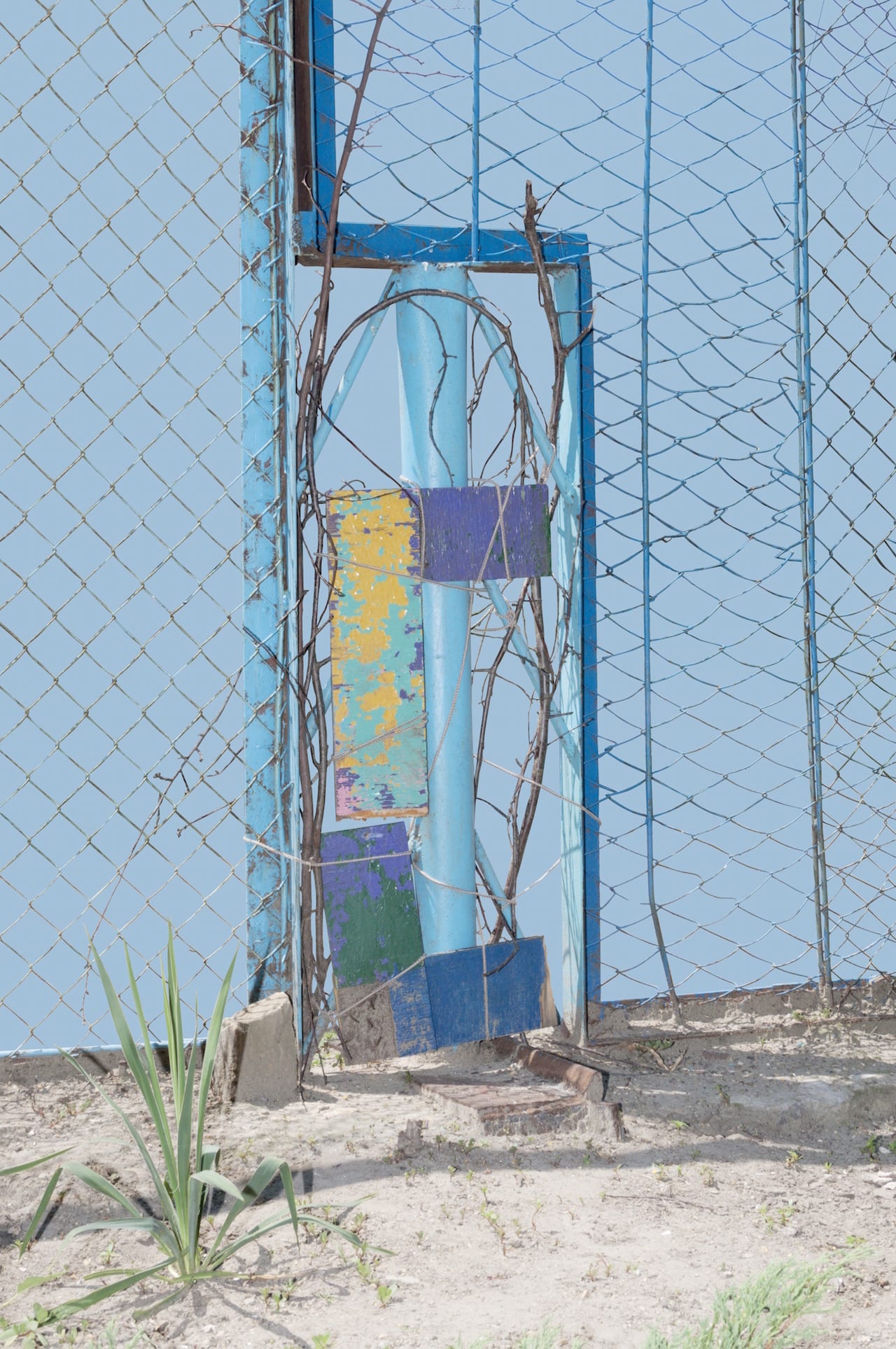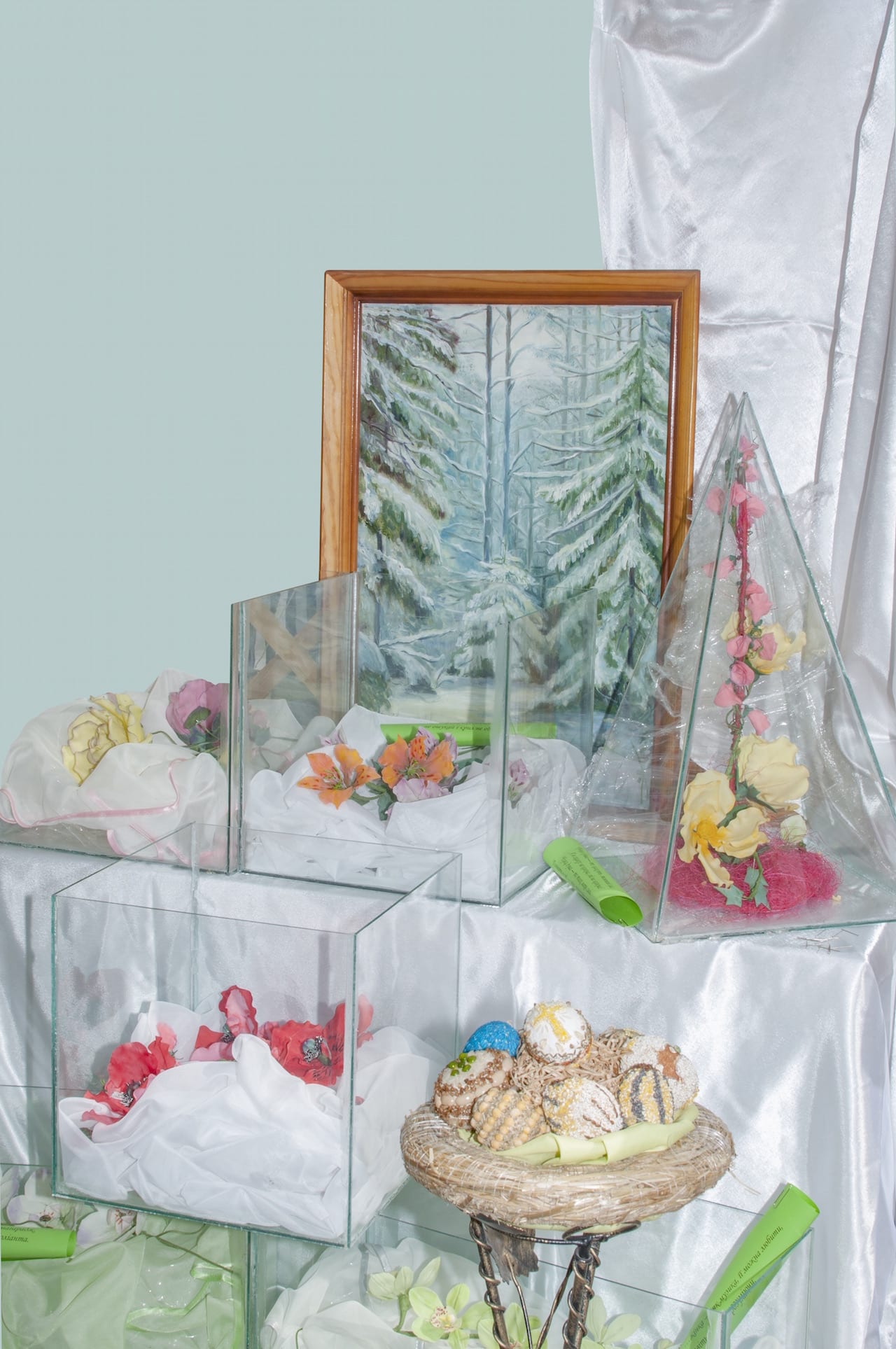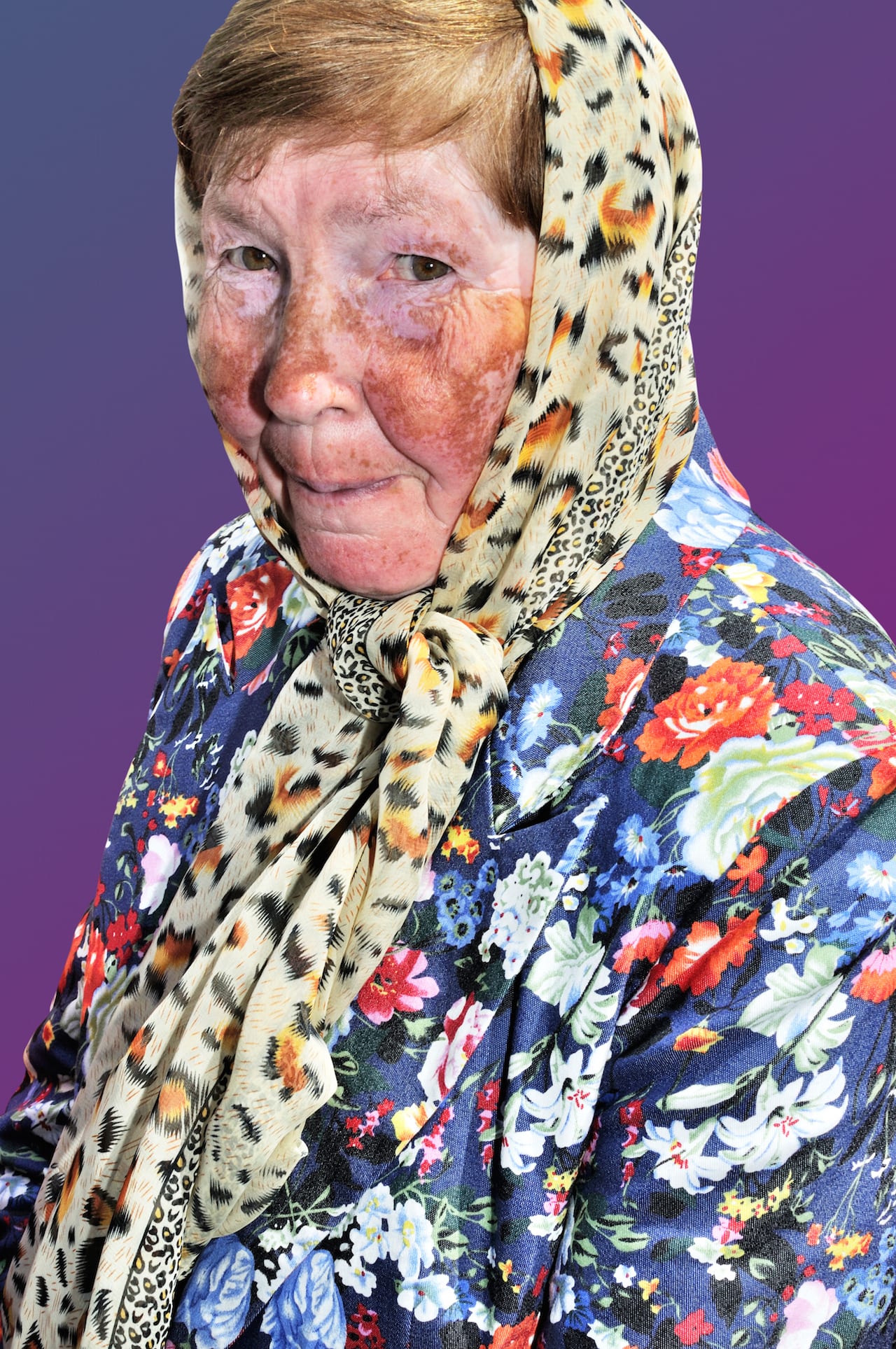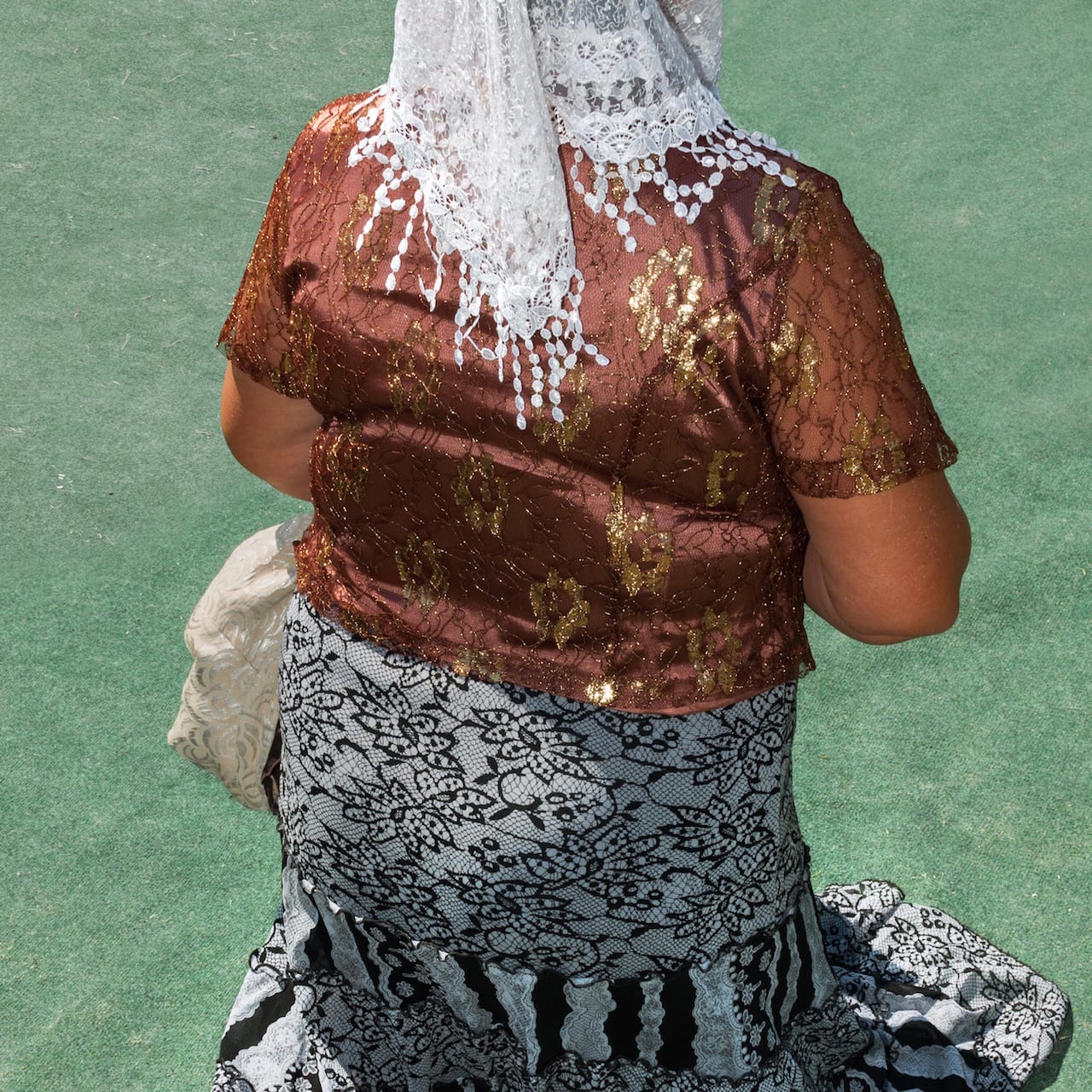A white painted stone sits atop a pile of concrete from a fallen telephone pole. A seemingly random assortment of rubble, it has in fact been gathered to fasten a manhole cover in place. During a period of particular hardship in Ukraine in the 1990s, manhole covers were often stolen and sold for scrap metal, leaving dangerous open holes in the road. This makeshift device, erected over time out of miscellaneous materials, is one of the objects in Viacheslav Poliakov’s Lviv – God’s Will, a taxonomy of the “unexplored field of accidents” that make up his surrounding urban environment. “It’s a combination of 10 people, some social factors and wild vegetation – that’s how this thing appeared,” the Ukranian photographer explains.
The project is a collection of objects and people that Poliakov photographed around Lviv and other cities and villages in Ukraine, then isolated and superimposed against colourful backgrounds. Paying tribute to what he describes as the “naive visual subculture of public space”, the 31-year-old pieces together a view of contemporary Ukraine through the small and often overlooked details of the everyday – one that points to the many frictions that have emerged from its recent history.
In Poliakov’s vision, it seems to be in the street that these histories play out. Once strictly ordered and controlled under Soviet rule, Ukraine’s urban environment has become an unregulated, jumbled patchwork made by different authors since gaining independence. “When you go to the Netherlands, for example, you go to a street and everything is made by somebody – a designer, an architect or an engineer,” says Poliakov. “Here in Ukraine, it doesn’t happen this way now.”
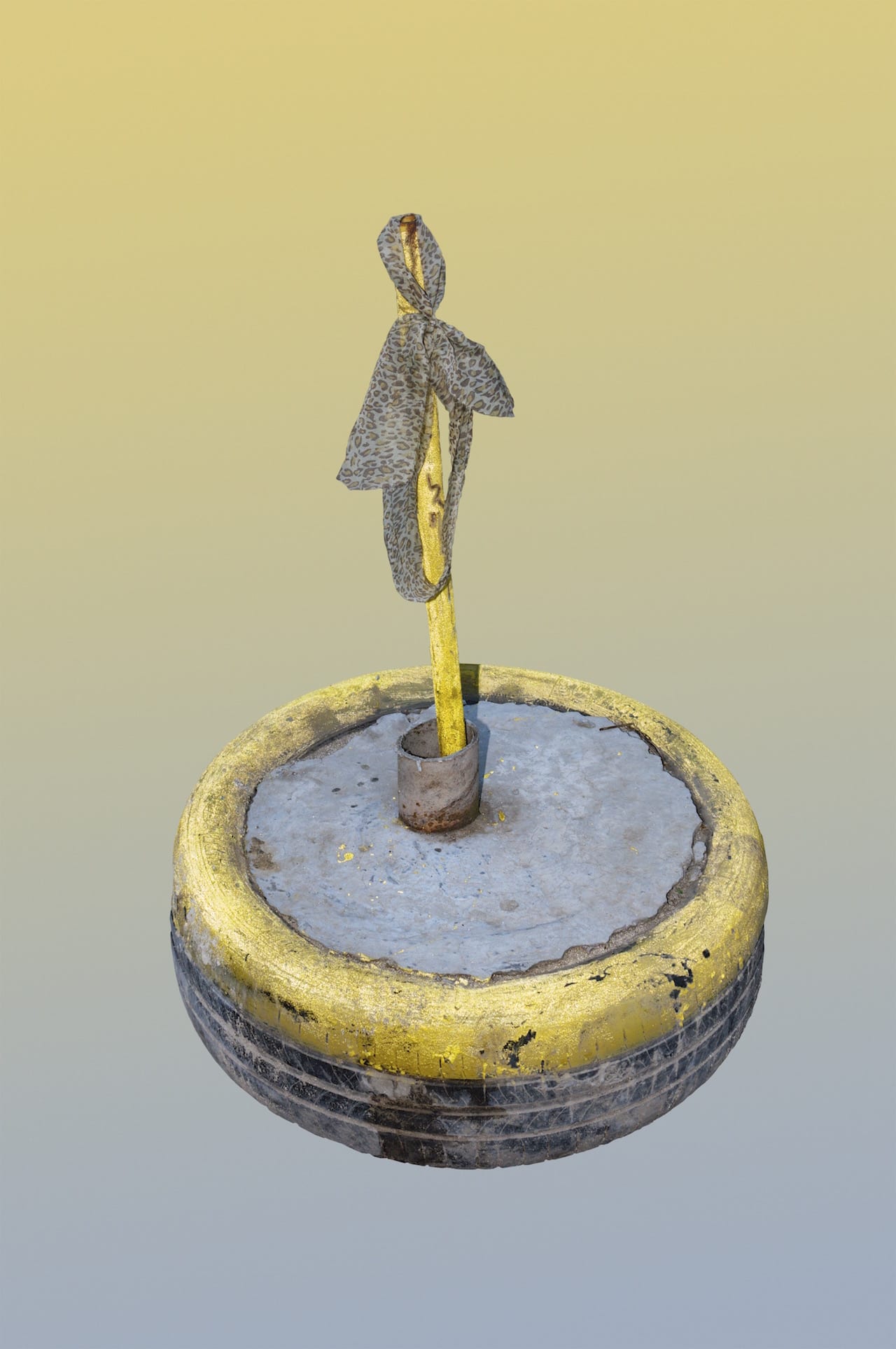
The arrangements that the photographer documents are impromptu, homemade solutions to daily problems created by citizens, or cultural expressions that have caught his eye. A country with a complex past, Ukraine has been entangled in defining its own national identity since the collapse of the USSR, swinging between folklore and tradition and the onset of globalisation, which has resulted in what Poliakov describes as a “unique visual culture”.
For the photographer, one of this year’s Foam Talents, this series is a departure from his earlier work, which was a more “tragic and romantic in black-and-white” strain of street photography. Lviv – God’s Will shows Poliakov’s desire to create a new, personal visual language to speak about his surroundings so although some images were taken a while ago, he decided to cut out the point of focus in his images later. By isolating his subjects, the details of each photograph are placed under near-scientific scrutiny.
“Photography has always been about framing, from the very beginning,” he says. “You take a picture of part of reality, of one point of view. This is a more advanced framing in Photoshop.”
via-poliakov.com Lviv – God’s Will is published by Overlapse books, priced £32 https://www.overlapse.com/catalog/lviv-gods-will/
This article was first published in the December 2017 issue of BJP, available via https://www.thebjpshop.com/
